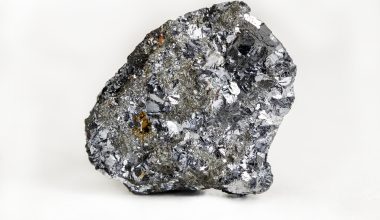This post is also available in:
![]()
From ancient times, gold has been considered a precious and valuable metal, not only for its use in jewelry and industry but also for its supposed health benefits. The Egyptians used it to treat diseases and ailments, while medieval alchemists considered it the elixir of life.
However, despite these beliefs, there are myths and realities about gold and its relationship with health that are important to know to avoid falling for deception or false promises. In this article, we will explore some of these myths and realities to gain a clearer and more objective understanding of the role of gold in human health.
Discover how myths affect your health and how to debunk them
Myths are popular beliefs that, although lacking scientific basis, many people believe to be true. In the realm of health, myths can negatively impact how people care for their bodies and minds. For example, the myth that consuming fats is bad for health can lead to an unbalanced diet and long-term health issues.
It’s important to debunk these myths for a healthy life. To do so, it’s necessary to research and seek reliable information from medical and scientific sources. It’s also important to consult with healthcare professionals and ask questions to clarify any doubts or confusion.
Some common health-related myths include the idea that natural products are always better than chemicals, that you must drink 8 glasses of water a day, or that intense exercise is always better than moderate exercise.
In conclusion, myths can have a negative impact on our health if we follow them without questioning. We should conduct our own research and consult with healthcare professionals to debunk popular beliefs and make informed decisions about our health.
Reflection: What health myths have you heard, and how have you debunked them?
Discover the false myths we believed were truths about health
In the world of health, there are many myths that have been popularized and were once believed to be absolute truths. However, with the advancement of science and research, many of them have been debunked.
One of the most common myths is that if you sweat, you are losing weight. In reality, sweat is a natural response of the body to regulate temperature and has nothing to do with weight loss.
Another popular myth is that eating before bedtime leads to weight gain. This is not true, as what really matters is the balance of calories throughout the day. If you consume more calories than you burn, regardless of the time, you will gain weight.
Another common myth is that vitamins are always good for health. While it is true that vitamins are essential for our bodies, taking excessive supplements can be harmful to health and, in some cases, toxic.
Another widely believed myth is that alcohol helps you sleep better. Although alcohol can help you fall asleep faster, it can also disrupt sleep and lead to poor-quality rest.
In conclusion, it’s important to stay informed and not believe everything we hear. We should seek reliable sources and base our decisions on scientific evidence.
Reflection: How many myths about health did you believe were true? How much misinformation have you encountered in your life? It’s important to learn to question what we hear and seek reliable information to make informed decisions about our health.
Debunking Nutritional Myths: What You Really Need to Know About Nutrition
Nutrition is a subject that has given rise to numerous myths, many of which have no scientific basis. To debunk these myths and clarify what we really need to know about nutrition, numerous studies and research have been conducted, yielding surprising results.
One of the most widespread myths is that fats are always bad for health. However, many fats are essential for the proper functioning of the body and should be part of a balanced diet. The key is to differentiate between saturated and unsaturated fats and consume them in moderation.
Another myth is that carbohydrates should be avoided at all costs. In reality, carbohydrates are an important source of energy for the body and should be part of a balanced diet. What should be avoided are refined and processed carbohydrates, such as sugar and white flour.
Regarding proteins, it’s important to note that not all proteins are the same. Animal proteins contain saturated fats and cholesterol, so they should be consumed in moderation. Plant-based proteins, on the other hand, are healthier and can be found in foods like legumes, nuts, and tofu.
Lastly, another myth that should be debunked is the idea that you must have multiple meals a day to boost your metabolism. In reality, what matters is maintaining a balanced diet tailored to individual needs.
In conclusion, it’s important to be aware of nutritional myths and have accurate and up-to-date information about nutrition to maintain a balanced and healthy diet.
Reflection: Nutrition is a complex and ever-evolving topic. It’s important to stay updated on the latest research and not be swayed by passing fads and myths. A balanced diet tailored to our individual needs is essential for maintaining good health.
The Healing Power of Food: When Nutrition Becomes Medicine
Food not only serves to nourish our bodies but can also have a healing effect on various illnesses.
The idea that food can be medicine is not new; even in ancient Greece, certain plants and foods were used to treat ailments.
Today, there is an increasing amount of research demonstrating how certain foods and nutrients can help prevent and treat diseases such as diabetes, cardiovascular diseases, and cancer, among others.
For example, it is known that foods rich in antioxidants like blueberries, walnuts, and broccoli can help prevent cardiovascular diseases and protect our bodies from oxidative damage.
Likewise, the Mediterranean diet, rich in healthy fats like olive oil and fish, has proven beneficial in preventing chronic diseases and reducing the risk of mortality.
On the other hand, some studies suggest that reducing refined carbohydrates and increasing healthy fats and proteins can be beneficial in treating type 2 diabetes.
In conclusion, food can be a powerful tool for preventing and treating diseases, becoming a form of natural medicine.
It’s important to note that nutrition does not replace conventional medical treatments but can be used as a complement to improve health and well-being.
In a world where medication and invasive treatments are the norm, we must not forget the power that food has to care for and heal our bodies.
Reflection: What foods can you include in your diet to improve your health and prevent diseases?
The Truth About Cancer Transmission: Does It Really Spread Through Blood?
In today’s society, there is a lot of misinformation about cancer and its transmission. It is often assumed that this disease can be transmitted through blood, but how true is this?
The truth is that cancer is NOT transmitted through blood. While it is true that some types of cancer can spread through the blood, such as leukemia, this does not mean that cancer itself is contagious.
It’s important to emphasize that cancer is a disease caused by genetic mutations in the body’s cells, not by viruses or bacteria. These mutations can be caused by factors such as exposure to toxic substances or aging.
Therefore, there is no need to fear contact with people who have cancer. There is no risk of transmission through hugs, kisses, or any other form of physical contact.
However, it’s important to mention that cancer can be hereditary. If someone in your family has had cancer, you may have a higher risk of developing the disease. It’s important to talk to your doctor about any family history of cancer and undergo regular check-ups to detect early signs of the disease.
In conclusion, it is a myth that cancer is transmitted through blood. It’s important to educate ourselves to avoid falling for misinformation and to help combat the stigma surrounding this disease.
However, there is still much to learn about cancer and its treatment. It’s important to continue researching and supporting people who are fighting this disease.
In conclusion, it’s important to remember that while gold has various properties and applications in medicine, there are also many myths and false beliefs surrounding its use. It’s always necessary to consult with a healthcare professional before using any gold-based products to treat a medical condition.
We hope this article has been useful in clarifying some of the myths and realities about gold and its relationship with health.
Until next time!

